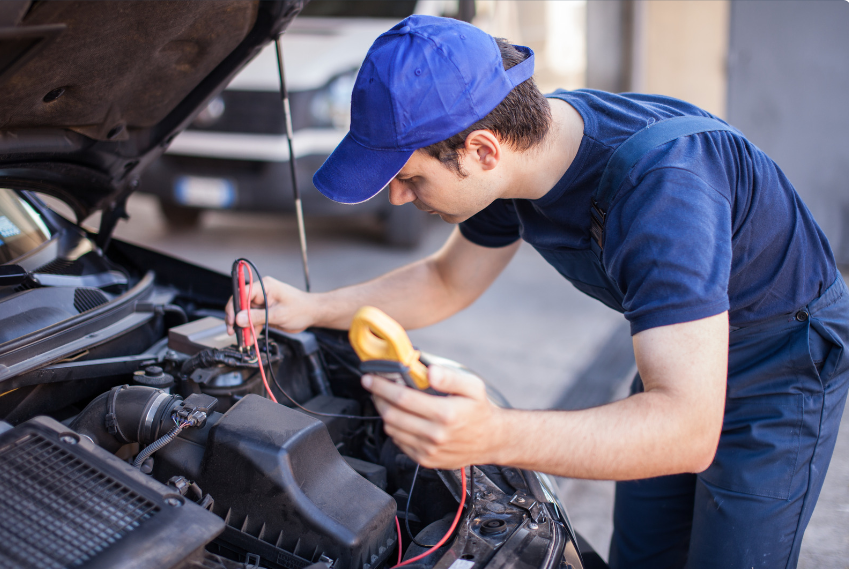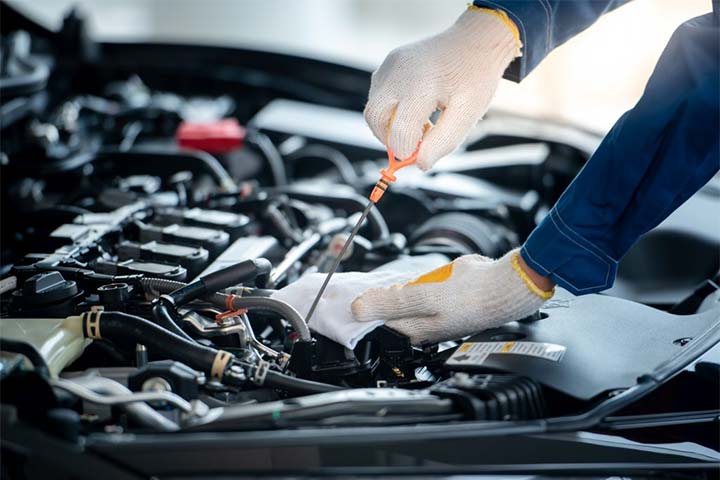Car maintenance is crucial to ensuring your vehicle runs efficiently and smoothly. Two components that play a significant role in the performance of your car are the air filter and spark plugs. Regularly replacing these parts as part of your car maintenance routine can boost engine performance, improve fuel efficiency, and prevent potential damage. In this complete guide, we will discuss when to change your car’s air filter and spark plugs and the signs that indicate they need replacement.
What is an Air Filter and What Does It Do?
Car maintenance involves taking care of various engine components, and the air filter is one of the most important. The air filter prevents dirt, debris, and pollutants from entering the engine, ensuring the combustion process runs smoothly. A clean air filter allows your engine to breathe freely, which leads to better fuel efficiency and improved overall performance. Regular checks and replacements of the air filter are key to keeping your car’s engine in top condition, and it is an essential part of your ongoing car maintenance.
Signs You Need to Replace Your Air Filter
If you notice any of the following signs, it may be time to replace your air filter as part of your regular car maintenance routine:
- Reduced acceleration or power: A clogged air filter can restrict the airflow to the engine, resulting in sluggish acceleration.
- Strange engine sounds: A dirty air filter can cause the engine to work harder, leading to unusual noises.
- Decreased fuel efficiency: When the air filter is clogged, the engine has to work harder, consuming more fuel.
- Unpleasant smells or smoky exhaust: A clogged air filter can cause the engine to burn fuel inefficiently, leading to odours and smoke.
- Check engine light: If the air filter is severely clogged, it can trigger the check engine light.
Being proactive with car maintenance means replacing your air filter at the right intervals to avoid these symptoms and maintain your vehicle’s efficiency.
What Are Spark Plugs and Why Are They Important?
Spark plugs are a crucial part of your car’s ignition system, and their condition directly impacts your engine’s performance. As part of your car maintenance, spark plugs ignite the air-fuel mixture within the combustion chamber, which powers your vehicle. Worn or faulty spark plugs can cause misfires, reduce engine efficiency, and even lead to engine damage over time. Maintaining healthy spark plugs is an essential aspect of car maintenance, as they help ensure the engine operates smoothly.
Signs It’s Time to Change Your Spark Plugs
When it comes to car maintenance, spark plugs can wear out over time, leading to various signs that they need replacement. Here are some common signs that indicate it’s time to change your spark plugs:
- Difficulty starting the engine: Worn spark plugs can make it harder for your car to start, leading to delays or a failure to start at all.
- Poor acceleration or hesitation: Spark plugs that are misfiring or degraded can cause the engine to hesitate during acceleration.
- Misfiring engine or rough idling: A faulty spark plug can cause your engine to misfire, leading to rough idling or jerky movements.
- Decreased fuel efficiency: Old spark plugs can cause incomplete combustion, which lowers fuel efficiency and wastes gas.
- Check engine light: Similar to the air filter, a malfunctioning spark plug can trigger the check engine light.
Being aware of these signs and including spark plug checks in your car maintenance schedule can help you avoid more significant issues down the road.
How Often Should You Change Your Car’s Air Filter?
The lifespan of your car’s air filter depends on driving conditions, but generally, it should be replaced every 12,000 to 15,000 miles as part of regular car maintenance. However, if you frequently drive in dusty or polluted environments, you may need to replace it more often. Regular checks are important as the air filter can become clogged more quickly under such conditions. Maintaining a clean air filter as part of your overall car maintenance plan ensures that your engine operates at peak efficiency, prolonging the life of your vehicle.
How Often Should You Change Your Car’s Spark Plugs?
When it comes to spark plugs, car maintenance intervals vary depending on the type of spark plugs your vehicle uses. Copper spark plugs generally need to be replaced every 30,000 miles, while platinum and iridium spark plugs can last anywhere from 60,000 to 100,000 miles. It’s essential to check your car’s manual for specific recommendations. Regular spark plug checks as part of your car maintenance routine can prevent engine misfires and keep your vehicle running smoothly.
How to Change Your Car’s Air Filter and Spark Plugs (DIY vs. Professional Help)
If you’re handy with tools, changing the air filter and spark plugs can be a straightforward part of your car maintenance routine. Here’s a quick guide:
- Changing the air filter: To replace the air filter, first, locate the air filter box, remove the old filter, and replace it with a new one. Ensure the new filter is fitted correctly and check the area for any dirt or debris.
- Changing the spark plugs: This process involves removing the spark plug wires, using a spark plug socket to unscrew the old spark plugs, and then installing the new ones. Make sure they are correctly gapped according to your car’s specifications.
While these tasks can be completed at home, if you’re unsure or lack the right tools, it’s always a good idea to consult a professional mechanic. Regularly including air filter and spark plug checks in your car maintenance routine ensures your vehicle runs efficiently without unexpected problems.
Benefits of Timely Air Filter and Spark Plug Maintenance
Maintaining your air filter and spark plugs as part of your car maintenance offers several benefits:
- Improved fuel economy: A clean air filter and well-maintained spark plugs contribute to better fuel efficiency by ensuring the engine runs optimally.
- Better engine performance and acceleration: Regular maintenance ensures the engine runs smoothly, providing faster acceleration and smoother driving experiences.
- Reduced vehicle emissions: Proper maintenance of these components helps reduce harmful emissions, promoting cleaner air and a more eco-friendly vehicle.
- Prolonged engine life: By keeping the air filter and spark plugs in top shape, you reduce strain on your engine, extending its overall lifespan.
By incorporating air filter and spark plug maintenance into your car care routine, you’ll enjoy a more reliable and efficient vehicle.
Takeaway
Incorporating regular car maintenance into your routine, including timely air filter and spark plug replacements, can have a significant impact on the performance and longevity of your vehicle. By staying on top of these tasks, you can improve fuel efficiency, prevent engine issues, and ensure your car runs smoothly for years to come. Make sure to check your car’s air filter and spark plugs regularly, and consult a professional mechanic if needed to keep your vehicle in peak condition.











